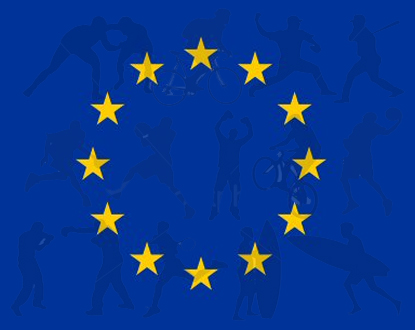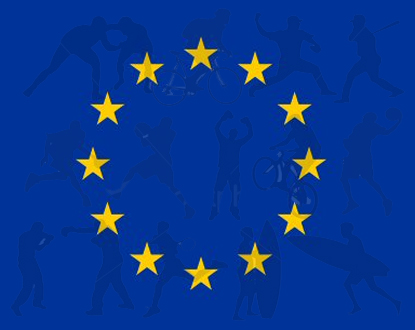Laurent Thieule, President of the think tank “Sport et Citoyenneté” (Sport and Citizenship), provides us with this very interesting contribution that answers the question posed by our title: “Even in times of crisis, sport contributes to economic growth, development, employment, and social cohesion in Europe.”
 Sport is one of the most efficient economic sectors and undeniably fosters social connections.
Sport is one of the most efficient economic sectors and undeniably fosters social connections.
It can have a financial leverage effect, bring media attention, and offer tourist advantages while also contributing to well-being in cities and rural areas: it is therefore clear that it has a significant place in European, national, regional, and local policies.
However, while sport certainly contributes to achieving the objectives of the European Commission’s “Europe 2020” strategy (a vector of “smart, sustainable, and inclusive growth”), there is currently no specific European sports program, nor any reference to sport in other programs, which does not encourage member states and regions to finance sports projects.
Or gives them some excuses to invest less in it.
In the Lisbon Treaty, there is, however, a new European legal basis for sport.
It should enable all European stakeholders to benefit from community funding.
Thanks to this, sport could further play its role as a creator of social bonds, a component of European popular culture, and a common denominator for the population.
From then on, it would represent a fantastic instrument for education and learning about citizenship. It would serve as a springboard towards European citizenship, through the values it carries but also through its contribution to learning them.
Local authorities, supported by clubs and their volunteers, bear, manage, and organize, on the ground, most sporting events and activities.
They must have more opportunities and visibility regarding European funding.
NOT “CURRENTLY INELIGIBLE”
Public authorities have the obligation to take action on this task.
Specifically, community structural funds are intended to finance sports infrastructure, essential elements for local and regional planning and development: be it the rehabilitation of a struggling neighborhood, improving labor market integration, or research and innovation.
A country like Poland has already extensively tapped into its structural fund envelope to build stadiums for the Euro 2012 football tournament, as well as sports facilities in 2,000 of its municipalities.
The European Commission is currently revising the regulations of the regional and cohesion policy for the 2014-2020 package.
It has proposed to allocate 376 billion euros, 36.7% of the total, for structural funds for this period, which will cover all regions and cities within the EU.
Very concretely, the European sports movement supports the idea that sport should be included in the eligible actions for assistance from the European Regional Development Fund (ERDF) and the European Social Fund (ESF).
THIS IS A FIRST POLITICAL RESPONSE THAT THE EU CAN PROVIDE
The European Commissioner for Regional Policy, Johannes Hahn, states, in an interview with the think tank Sport et Citoyenneté, that “the importance of sport, particularly in the fields of education, youth, citizenship, and health. (…) [and] the absence of an explicit reference to sport in our regulations for cohesion policy does not mean that it is currently ineligible.”
The commissioner suggests directions: “Regarding the future investment priorities of cohesion policy, the focus will be on a limited number of priorities.
Within this framework, cohesion policy resources could be used to leverage the value of sport as a tool for local and regional development, urban regeneration, rural development, and employability.
Sport-related activities (and infrastructure) can be financed by cohesion policy funds only insofar as they contribute to the overall objectives of our policy and in the context of an integrated regional or local economic development strategy.”
LACKING CONCRETE PERSPECTIVES
This “European menu” described by Johannes Hahn is encouraging: it reveals a prospect of funding, particularly for sports projects by local authorities.
It’s up to them to make this effort of understanding, requests, and “smart specialization” to promote an equitable distribution of capacities, especially financial ones from European funds.
They must do it in alignment with the national and regional priorities.
However, there is still a lack of more concrete perspectives for sport: at the EU level, there is still neither budget nor program in this area.
It is incredibly disappointing for the 40 million European sports volunteers that despite the new legal competences and reaffirmed political intentions of the EU in sports, financial advancements in this area remain so limited.
Member states and the European Parliament will, of course, have their say in the coming months on the next multi-year European financial framework.
But the European Commission remains in charge of the regulations and the eligibility of sport in cohesion policy.
And the game is far from being won.


